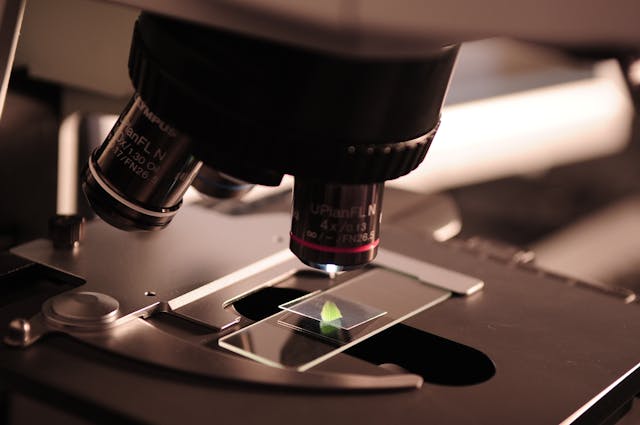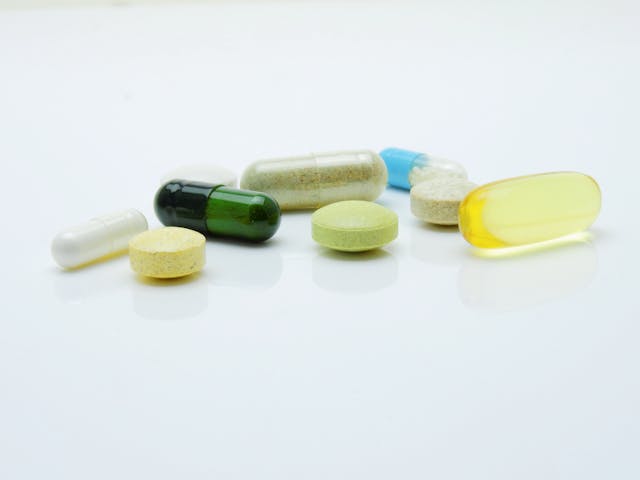Key takeaways
- Smoking disrupts gut bacteria, impacting digestion and absorption.
- Reduced gut microbiome leads to IBS and digestive issues.
- Smoking causes constipation, heartburn, and hinders nutrient absorption.
- Frequent abdominal pains, IBS, and inflammation linked to smoking.
- Smoking heightens risks of ulcers, Crohn's, and stomach cancer.
Are you one of those smokers who feels a sense of satisfaction after lighting up a cigarette following a meal?
It’s quite common for smokers to feel that their dining experience isn’t fully complete until they’ve had that post-meal cigarette.
The feeling of being full can seem to pair perfectly with the familiar ritual of inhaling and exhaling smoke from your favourite brand.
While the feeling you get from lighting up after a meal might seem pleasant, your body is definitely not enjoying the smoke you’re inhaling.
Chat to a prescriber
Bulk-billed phone consultations
TGA-authorised clinicians
Nicotine vaping scripts available
It’s no secret that smoking can cause all sorts of health issues, and your stomach is not immune to the damage.
What feels like a comforting habit could actually be doing more harm to your digestive system than you might think.
Smoking can disrupt gut health, with nicotine sometimes triggering irritable bowel syndrome (IBS) right after eating.
Cigarette smoke’s 7,000 chemicals, including 69 carcinogens, disturb the balance of microbiomes that help digest food and absorb nutrients in the intestines.
Read this article to discover how smoking impacts your gut health and what happens when you quit.

How Cigarette Smoke Transforms Your Gut Bacteria
When you hear the word “gut,” you might just think of your stomach. But, in fact, it includes your large and small intestines too, which are responsible for breaking down food and absorbing nutrients.
While your intestines handle most of the heavy lifting, there’s also a team of tiny organisms, called gut microbiomes, that help your body absorb vitamins and minerals more efficiently.
Unfortunately, each cigarette you smoke damages these helpful little workers, making digestion less effective and much slower.
Now, let’s explore what happens to your gut when you’re still smoking.
Good Bacteria Imbalance
Your gut microbiome does more than just aid digestion.
It also plays a key role in protecting your stomach and intestines from harmful bacteria, helping to reduce the chances of food poisoning and digestive infections.
Sadly, when you smoke, the number of these helpful microorganisms decreases, which can lead to a condition called dysbiosis.
This means your microbiome can no longer act as a barrier to protect your gut properly, making you more vulnerable to problems like IBS, metabolic issues, and autoimmune disorders.
So, your gut will thank you when you quit smoking, and you’ll be able to enjoy your meals without worrying about rushing to the loo or facing digestive discomfort.
Poor Digestion
As mentioned, dysbiosis can cause lots of things to happen. You’re prone to digestive infection and disorder, and you won’t absorb the full amount of vitamins, nutrients, and minerals from the food you eat.
Without helpers to break down food into simpler forms that the large intestine can easily absorb and digest, your food just passes through without completely nourishing you, bloating and causing discomfort right after a meal, especially if you’ve just had a large one.
Poor digestion due to smoking can also result in constipation and heartburn. So, if you’re already having some digestion problems, maybe it’s time to stop smoking and introduce more fibre and healthier foods in your diet, too.

Lower Nutrient Absorption
Your gut microbiome is a diverse community that’s very fragile and delicate to chemical changes in the digestive tract. Similar to a typical organisation or business, disruption affects productivity.
In this case, cigarette chemicals disrupt gut microbiomes enough to lower nutrient absorption.
Combined with a poor diet, you’ll be lacking in nutrients, vitamins, and minerals to keep your skin looking young and ensure your immune system and organs are working properly.
Even if you eat nutrient-rich foods while smoking, you’ll never absorb the nutrients completely, which may explain why you feel weak and fatigued after smoking and during the initial week of quitting smoking for a better gut health.
Frequent Abdominal Pains
IBS is a leading cause of frequent abdominal pain in smokers. Aside from IBS, smoking can also cause gut inflammation without triggering IBS.
The chemicals in cigarette smoke encourage the growth of inflammation-causing bacteria in the stomach and intestines. Combined with the dehydrating effects of smoking, they can proliferate quickly, giving you IBS-like symptoms and a bloated and painful feeling.
If you suspect that you have a digestive or gut infection due to frequent abdominal pains, we recommend you see a doctor for a full evaluation. Moreover, we encourage you to stop smoking immediately to reduce or prevent stomach and gut infections.
Higher Cholesterol
Your gut microbiome does a lot for your body, so much that it can also lower cholesterol and plaque in the body – two main contributing factors to high blood pressure and heart diseases.
The friendly bacteria in your gut biome break down the bad cholesterol in your body, so if they’re disrupted from properly doing their job, they cannot help maintain your blood pressure and reduce the plaque buildup in the arteries.
Fortunately, it’s easy to prevent this from happening – once you quit smoking, the gut microbiome will continue its work and restore its population.
Then, it would start helping you break down bad cholesterol once again, a process that’s sped up if you eat right and regularly exercise.

The Effects of Smoking on Your Stomach
Once your gut health is weakened, you’re susceptible to stomach infections and diseases. Here are some of the conditions you are likely to experience if you don’t stop smoking soon.
Heartburn: If you feel a burning sensation in your chest right after smoking, that’s a sign that you’ve got heartburn. Typically, you’d have to eat a whole lot to feel heartburn, unless you have a disrupted gut microbiome.
Peptic Ulcers: The gut microbiome creates a wall of themselves that aid in digestion and in keeping out dangerous bacteria that may arrive with the food you eat. If your microbiome is disrupted or reduced in number, this can expose your stomach lining to chemicals and bacteria that cause open sores or raw areas.
Diarrhoea: Dysbiosis leads to diarrhoea as the stomach and intestines get exposed to diarrhoea-causing bacteria. If the microbiome level remains low, it can lead to Crohn’s Disease in severe cases.
Crohn’s Disease: Without gut microbiomes to help with digestion and to fend off infections, the body goes through persistent diarrhoea, inflammation, and a great deal of discomfort that lead to Crohn’s Disease.
Stomach Cancer: We all know that smoking will lead to some form of cancer in the lungs, heart, stomach, and other parts of the body. It’s the same for your intestines and colon, too.
How to Get Started Quitting Today
You can keep your gut health in good shape by ridding yourself of the toxic chemicals in cigarette smoke. If you’re ready to get started on your quit journey, you just need to take a few steps towards wellness.
Go Through First-Line Solutions First
Some motivated smokers can handle cold turkey just fine and see success within a few tries, but oftentimes, smokers have strong withdrawals that can draw them back to lighting a stick.
That’s where nicotine replacement therapy (NRT) products come in. These are readily available and stocked at your local pharmacy.
NRT products are the most trusted quitting option available for motivated smokers. They might not imitate cigarettes, but they contain a small dose of nicotine that may be enough to alleviate your withdrawals. These come in the form of patches and gums for easy and convenient nicotine delivery.
While NRTs can be effective, they don’t work for everyone. If these haven’t done the trick for you, you may now be eligible for a nicotine prescription to use nicotine vaping products (NVPs).
Chat to a GP
As mentioned, NRT products have worked for many successful ex-smokers. But, you might have ingrained behaviours and triggers that only something that mimics a cigarette can successfully address, such as the hand-to-mouth motion, and needing something to use while having a drink with friends.
That is where NVPs become very handy in helping you fight the urge to consume tobacco.
You need a nicotine prescription before you can purchase NVPs, so you’ll need to consult with a GP to help you on your smoking cessation journey.
And, if your GP deems it necessary, they can write you a nicotine prescription for NVPs.
You can chat to your usual GP more about this.
Visit Your Local Pharmacy
Once you have your nicotine prescription, you can pop down to your local pharmacy. Over 2,200 pharmacies across Australia hold these products in-store, but any pharmacy can order these in for you if they don’t currently stock them.
Both your pharmacist and GP can advise you on how best to use the product, such as the initial setup, and the number of puffs to take when you feel withdrawals.

Summary
Your gut health after quitting smoking will quickly improve as your microbiomes restore their population and order in your digestive system. Over time, you’ll feel healthier, reduce bloating and heartburn, and have regular bowel movements.
All you have to do is endure a few weeks of difficult withdrawals and cravings, and you’re off the hook, and we can help you deal with those.
Smokefree Clinic gives you access to many medically reviewed and trustworthy resources that can inform and aid you in your path to wellness, so have a look around!
If you’re ready to get started, Smokefree can connect you to Australian healthcare professionals who excel in helping patients quit smoking for good.
Link Reference
- https://nyulangone.org/conditions/irritable-bowel-syndrome/treatments/dietary-changes-for-irritable-bowel-syndrome
- https://www.sciencedirect.com/topics/medicine-and-dentistry/dysbiosis
- https://www.ab-biotics.com/dysbiosis-world-microbiome-day/
- https://www.mdpi.com/2227-9059/11/4/1144
- https://www.ncbi.nlm.nih.gov/pmc/articles/PMC8347163/

